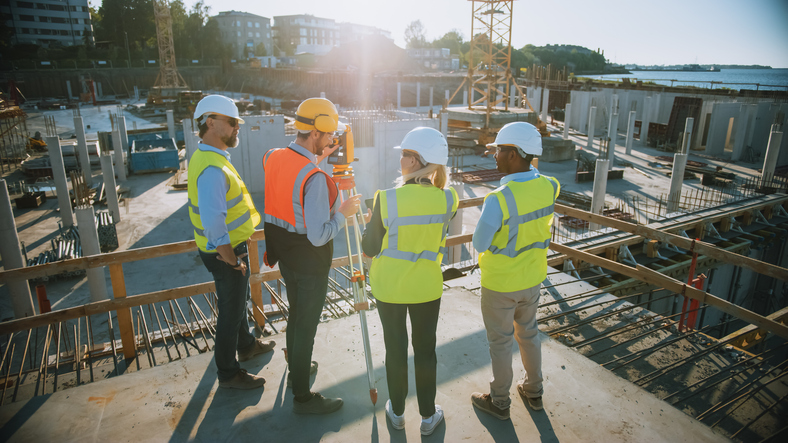
HAMILTON, NJ – July 21, 2022 — The latest edition of The Civil Quarterly (TCQ) from Dodge Construction Network reveals that increasing resilience of U.S. infrastructure is a priority across the industry. The findings show 82% of civil contractors and 92% of civil engineers affirmed that they have worked on projects that prioritize resilience.
The Infrastructure Investment and Jobs Act (IIJA) includes significant funding for bolstering the resilience of infrastructure in the US, but funding just lays the groundwork. The success of these efforts is dependent upon the civil engineers and contractors who will do the work.
The report, produced in partnership with Infotech and Hexagon, is based on a quarterly survey of civil contractors and engineers conducted in May 2022. The report also includes data on the business conditions faced by civil contractors, including the acute degree of difficulty they report in finding sufficiently skilled workers and trending data over three years on the use of new and emerging technologies onsite.
The findings on resilience appear to uphold the promise of improving the resilience of US infrastructure in the IIJA. Most of the civil engineers and contractors have some experience in this area, and on average report that 40% of their projects fall in this category.
The greatest experience with these projects includes:
- Strategies to reduce the impact of flooding: nearly all engineers (86%) and almost half of contractors (47%) report working on projects with this as a priority.
- To better understand this top area, the Quarterly also includes a feature article on making shorelines more resilient.
- Hardening of infrastructure to avoid vulnerability to attacks: reported by 49% of engineers and 38% of contractors.
- Assets designed to function effectively during/after a disaster: reported by 37% of civil engineers and 30% of civil contractors.
However, engineers and contractors have different priorities for the areas which they think should be prioritized more on future projects.
- Majority of civil engineers find that two of these strategies – reducing the impact of flooding and hardening of infrastructure to avoid vulnerability to attacks – should be prioritized in the future. However, they prioritize designing assets to recover quickly after a disaster over designing them to function effectively during a disaster.
- Civil contractors, in contrast, believe that designing assets to function effectively during a disaster is a top priority, and a high share also believe greater priority should be given to strategies to reduce vulnerability to cyberattacks.
Notably, other than floods, fewer than 20% of civil contractors report strategies to deal with specific types of natural disaster, including earthquakes, wind damage and fires. Dealing with these specific disasters was not among the top priorities for future projects for either contractors or engineers.
While many have worked on projects that prioritize resilience, confidence in their expertise in this area, especially among civil contractors, is limited. Only 28% of contractors report that they are experts in this area or at least have staff who can provide specific approaches to increase resiliency. Strikingly, nearly all (81%) of the contractors who have that in-house expertise regard it as a competitive advantage in their business. This is not well understood by the rest, with only 33% of contractors that do not have that expertise recognizing the advantage it provides.
These findings suggest that more training in these areas and more focus on them will help improve the bottom line of these companies while also improving the state of infrastructure in the US.
The Civil Quarterly provides a quarterly snapshot of the current business health of contractors operating in this dynamic environment and explores trends in the industry. The report is the result of a partnership with Founding partner Infotech® and Platinum partner Hexagon. It is based on original research collected from civil contractors and engineers and is available for free download to inform stakeholders in the U.S. civil construction industry. Future editions will continue to address a wide range of related topics providing a comprehensive view of this complex and ever-changing segment of the construction economy. Click here to download a copy.